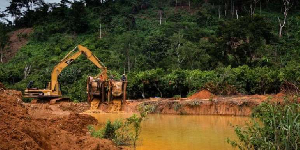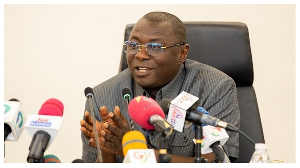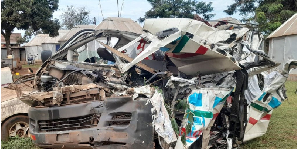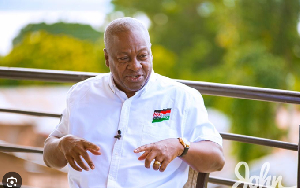The Association of Professional Development Communicators-Ghana (APDC-Ghana) has called on the government to conduct research in illegal mining areas by engaging the youth to address the worsening illegal mining situation, commonly known as galamsey.
In a press release issued on October 11, the organization outlined the urgent need for research-driven and sustainable solutions to combat the environmental destruction and socio-economic challenges posed by illegal mining.
The Association also wants the government to implement an immediate halt to all small-scale mining activities in water bodies and forest reserves.
“Implementing an immediate halt to all small-scale mining activities will allow for the identification and proper assessment of all mining sites,” APDC-Ghana noted in the statement.
APDC-Ghana expressed concerns over the failure of past government-led anti-galamsey campaigns, such as temporary bans, Operation Vanguard and Operation Halt, arrests and seizures of mining equipment, and drone monitoring.
While these interventions showed commitment to combating illegal mining, the Association indicated that they were largely seen as temporary measures that failed to address the root causes of the problem.
“While these interventions demonstrated commitment, they ultimately provided only temporary relief and failed to address the root causes of illegal mining or offer sustainable economic alternatives,” the statement reads in part.
APDC-Ghana is advocating for a multifaceted approach that begins with thorough research into the socio-economic drivers behind illegal mining activities.
According to the organization, such research will help identify the underlying factors that push communities, particularly the youth, into illegal mining, while offering insights into sustainable alternatives.
“APDC-Ghana recommends conducting comprehensive research in galamsey-affected areas to identify the socio-economic drivers of illegal mining,” the statement emphasized.
The organization also urged the government to engage local communities through town hall meetings to gather insights and explore alternative livelihoods.
This, they believe, will ensure that the solutions are not only research-based but also community-driven.
The organization further proposed the reassessment of mining licenses to improve accountability and ensure that all mining operations meet environmental standards.
General News of Saturday, 12 October 2024
Source: www.ghanaweb.com

















